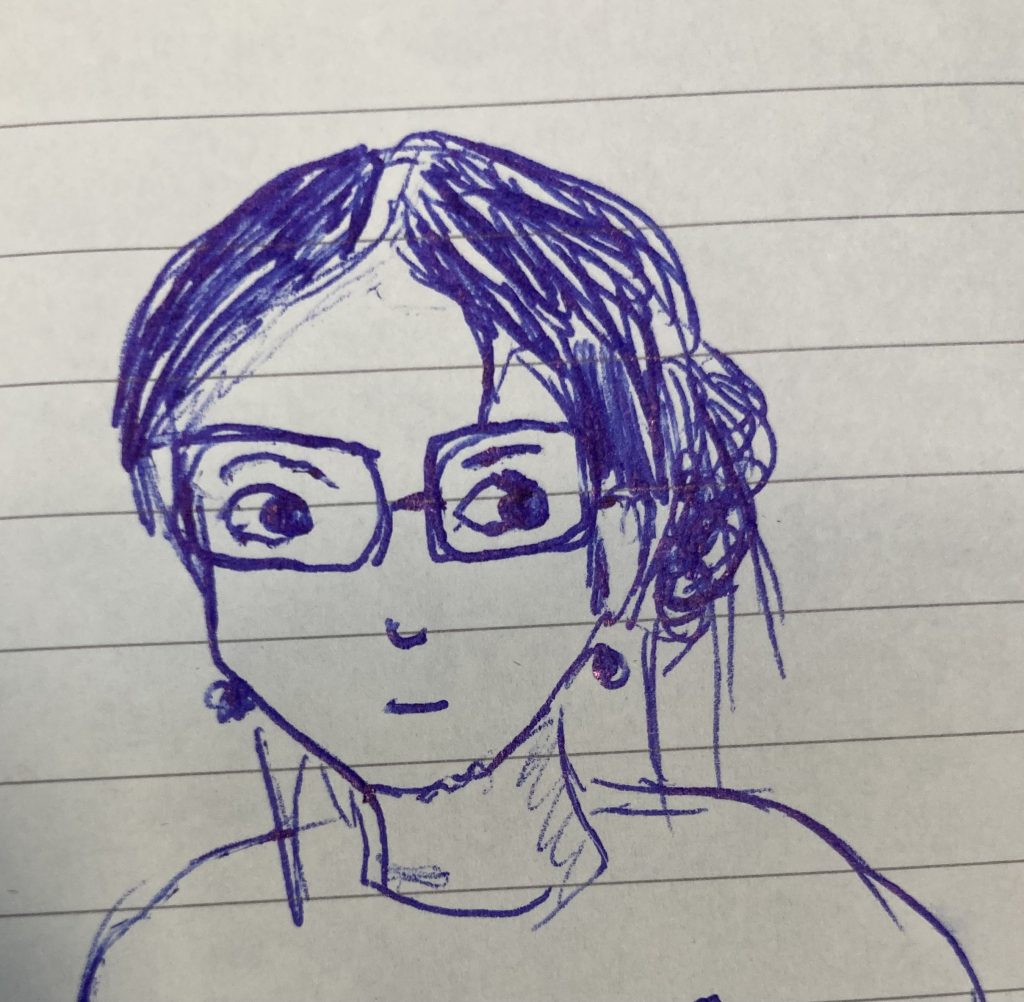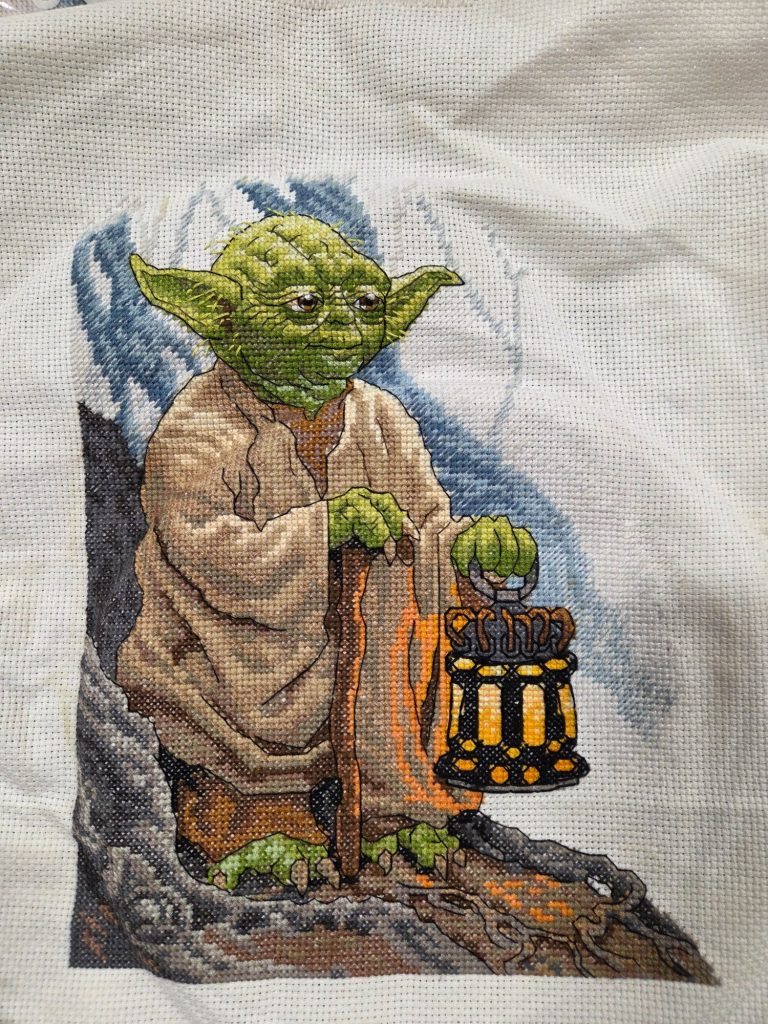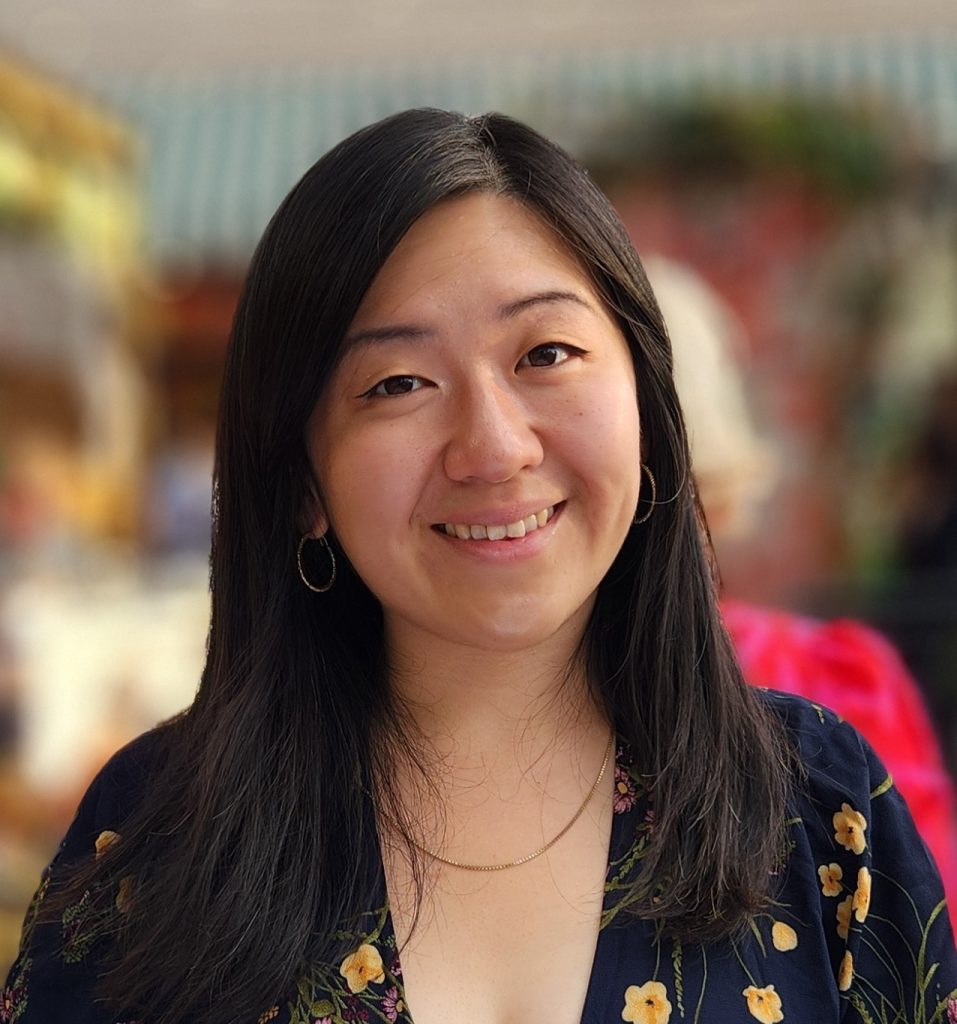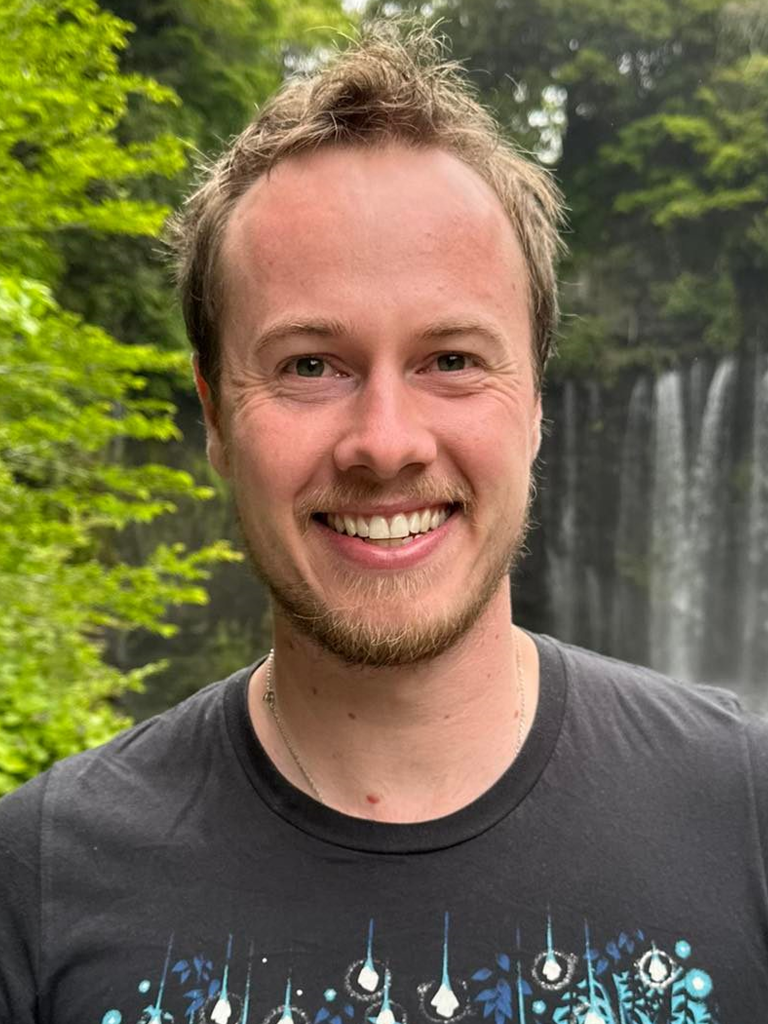edited by Amanda Helms
The first god on our list wears the skull of a polar bear. The god is shrunk to the width of my little finger and almost transparent. Darkness seeps like squid ink from their eyes.
“Sir,” I address the tiny god. “Can you give me an account of—?”
ice, the god interrupts, their voice like crunching frost. ice.
Cata winces. She hasn’t been in the After Realm very long, and she’s only just been assigned an internship at the Department of Fading Gods. This is probably the first time she’s had a god speak directly into her thoughts.
The God of Ice—to give them their full title—once echoed through icebergs and glacier chasms. They sang themself awake against a chorus of scraped whale-bone, drowned men caught like blebs in the ice, the splintering of coracles and then ships. Now they’re the skitter of mouse claws in winter, a puddle cracking under a child’s shoe. They’re lucky; they don’t realise how far they’ve shrunk. They still have their tiny glee in violence, their hunger, their righteous fury.
The cold gnaws at my ankles. “Please state your case.”
ice, they say. ice!
I could shave this tiny god into a cocktail. I could melt them with a breath. What I can’t do—never can—is get a straight answer.
“Fine. Ice. Autumn leaves limned in frost, that sort of thing?” I’m not strictly meant to suggest paths of belief, but otherwise we’ll be here all day. “How about the existential dread of glaciers melting?”
ice, the god repeats, triumphant.
Cata’s trying not to laugh. “Or praying you’ve remembered to put antifreeze in the car?”
“Good point.” I say, with dignity, and turn back to the God of Ice. “Happy with that?”
Baffled silence. The concept of good and the concept of happy are so far beyond their comprehension that the god doesn’t even rage.
“That’s enough for another year, then.” I make a note in the book.
ice, they command. Unknowing, ungrateful, entirely oblivious to their reduced state and the grace that’s just been extended to them. A housecat that’s never met a dog, never been cowed by a rampant toddler, never even left a house.
ice, ice—
***
“And that was a god?” Cata asks, when they vanish. “Seriously, Aoife, that was weird.” Cata pronounces my name perfectly. Normally that would be enough for me to warm to her, but I’m still feeling defensive.
“Didn’t you get the briefing?” I ask.
“The Organising Powers of the After Realm… blah blah.” Cata shoves her hands in her pockets. She must have graduated on Halloween, Día de los Muertos or something like that, because she’s wearing this amazing black jumpsuit embossed with a skeleton. The bones aren’t quite anatomically correct; some of the smaller phalanges are missing and others are simplified, but Cata’s too cool to care. She’s got big black boots on, and tiny skulls swing from her silver hoops. Compared with my grubby old clothes, my stained trainers, the river-water darkening my hair and dripping down my collar, it’s hard to believe we’re from the same planet. “Something about winnowing?” she says.
I nod. “Yep. The Powers that run the After Realm like things to be tidied away. For those gods with insufficient belief, we erase their Names, so that no record remains.”
Cata nods. “Eternal decluttering.”
“You could say that.” I can’t tell if she cares. The Powers see no use for tiny gods, or any of the other scraps of belief that stray into their Realm like autumn leaves blown in through the front door. Human sensibilities are much more forgiving of small and messy things; after all, we’re small and messy ourselves. We have our instructions, here at the Department, and we enforce them to the letter.
“But we’re not Powers,” she says. “We’re human.”
“Yes, well. Gods are a human thing, so they need humans to deal with them.”
Cata frowns. “My abuela would argue it was the other way round.”
I shrug. “I’m not an expert in theology. I didn’t expect to Graduate so early, and—”
I stop, embarrassed. Cata Graduated early, too. She doesn’t need to hear my life story, even if there’s no one else to talk to. But Cata only nods. The eternal starlight pours through the temple’s open roof and glints off the hoops in her left ear.
“So that’s it?”
“That’s it? We decide whether a god has been forgotten,” I remind her as sternly as I can. “Whether they live or fade away forever. We summon them. And god by god, they plead their case. To us.”
I hand Cata the Book of Fading Gods ceremoniously; she takes it with no ceremony at all. It’s heavy, bound in bog-oak. The wood seems dead but every now and then, when least expected, a green shoot emerges.
Not subtle, as metaphors go.
Metaphors matter here. Belief sustains gods, but old gods fade. They become scraps of divine consciousness. Rags in the wind, looking for something to cling to. A good fishing ground. A twist in someone’s luck. Sometimes, even one believer is enough.
Everyone knows that. Nobody thinks about the paperwork behind it.
Cata shrugs, hands still in her pockets. “But these gods… they’re the size of insects. They don’t do anything. Why do you care what happens to them?”
“Because I met one,” I say quietly.
“Met one?” Cata’s smiling. Ready to make a joke of it. But I can’t.
“Yes.” The God of Aoife’s Nephew. The God of the Nick of Time. I can’t think of a way to change the subject. “Back when I was alive. I met one.”
Cata looks at me. At the river-weed in my hair and tractor oil on my jeans. At my old grey jumper, unravelling along the hem. I’d been helping out on my brother’s farm when I Graduated. I know Cata’s look. She’s deciding whether or not to ask how it happened.
Goody Moonraker told me to talk about it. She used to run the Department, and she was something of a mentor for me, even though she died five hundred years before I was born. “Centuries go by, Aoife,” she’d said in her cracked voice. “And it ossifies. Your truth gets stuck deep under the bone. And you can’t ever get it back.” She was right. But it’s hard. To say, there was an accident. Anyway if I talk about it, I cry, and that’s embarrassing for everyone.
Cata breaks the silence before it becomes awkward.
“Show me the summoning bit again.”
“Like this.” I prick my thumb with the silver pin we keep for the trickier gods, and smear a bead of blood across the second Name on my list. Its runes are as jagged as broken branches.
Cata leans away, eyeing the pin. “Do the interns get put on blood sacrifice duties? Or just the coffee run?”
I smile painfully. Coffee is near the top of my personal Things I Miss about Life list. Right after my family and sunlight. Also biking downhill in summer, my old cat Toggles, and those deep-fried cinnamon-dusted donut holes they sell in fairgrounds. There’s tea in the After Realm, thank all the tiny gods, but you can’t get a decent coffee this side of death.
***
The blood soaks into the runes. The God of Chestnut Trees in Autumn embodies in a crackle of dry leaves, a plump man in robes of russet and amber. The air smells of cinnamon and firewood. Another angry one. He stamps around our summoning platform, every inch of him trembling with fury. He shouts up at us, shaking a pea-sized fist.
“We have to give him a fair hearing,” I say, after an embarrassed pause. The tiny god rants and raves inaudibly.
Cata rolls her eyes. “And we can’t hear him. I think I get it.”
I mark the book. The god disembodies for another year. “Thanks, Cata.” Then I remember she’s an intern and I’m meant to be encouraging her. “Great job. “
“They’re just making stuff up,” she says. You’re just making stuff up, she means. I can see where this is going; our last intern quit over what he characterised as an excess of sentimentality and went to work for Spiritual Accounting.
“Everything was made up once.” That’s what Goody Moonraker told me. “Even gods. Doesn’t mean they’re not real.”
Cata just side-eyes me. I wish Goody were here; she was a lot more convincing than I am.
***
Still, we make good progress. There are dozens of gods scheduled for review today, and hardly time to catch our breath between them. “It’s not normally this busy,” I say. “Things are hectic because of the Festival.”
“The Festival?”
“The Festival of Memories. It starts today.”
Cata scrunches her forehead. “On the third of August?”
I’m impressed by her quick maths. “Well, it changes.” The Festival is meant to fall on quiet days, when nothing much is happening on Earth. But almost every day on Earth has celestial and divine significance. Holy dates change with the moon, or the Earth’s angle to the stars and the sun. And don’t start me on weeks. I still can’t fathom why weeks are patterned around a prime number. Earth calendars really are a shambles.
Nearly every other realm is better organised. There’s a fairyland with five seasons—Starlight, the Dances, the Knives, Frost and Despair—but no months. There’s a world of pristine snow, where each day lasts a hundred hours and each year exactly ten thousand days. And in the Underworld of Endless Dark, you don’t have to worry about calendars at all.
I shouldn’t compare Earth to them. I’m like that friend with rich parents who did an exchange to France and came back complaining that the bread at home doesn’t taste the same.
Except I can’t go home.
***
We summon and dismiss the God of Items Lost on Trains, the God of Lemons, the God of Missing Someone Whose Face You Can’t Remember. Cata’s very quiet.
“Are you all right?”
Cata’s eyes are shadowed, but the marigold tucked behind her ear is bright and warm, like morning sunshine. “I’m fine,” she mutters. She glimpses eternity out of the corner of her eye and winces. “Imposter syndrome.”
“Mortal Resources chose you.” The earnestness in my voice makes me cringe. I wish I could be as nonchalant as Cata. “You don’t have to stay here once your internship is finished, but you’re here for a reason. Everyone is.”
Sometimes I worry about that. I could have trained as a dream-stalker, a shuck-whisperer, a scribe for the Union of Hauntings. Why am I here? I shake those thoughts away. “There’ll be something about you. Some conversation with divinity, even if it’s an argument.”
Cata slams the book shut. “Aoife, I don’t think I can do this.”
***
We sit in the staff room out the back of the temple complex and I pour the tea. The room has dark curtains and a slouchy sofa. The Eternal Void is a nice shade of blue and streams with stars, but it strains the human soul. Sometimes you need a roof over your head.
“Thanks.” She warms her hands on the cup. “It’s just… Aren’t you, well, hoarding gods?”
“Belief generates belief.” Goody Moonraker told me that once; I hope Cata doesn’t ask me to explain it: I’m only half-sure what it means myself. “Anyway, we don’t keep them. Didn’t you cover this in training? They’re not like… I don’t know, butterflies ethered in a collection case.”
Cata wrinkles her nose. “I can’t believe people used to do that. Old white men have a lot to answer for.” She looks at me accusingly. “But do you ever winnow the list of gods at all?”
“Sure,” I say. “We had a God of Teapots until a few years back. The last intern got over-enthusiastic, and bam. Winnowed.”
A careless act of unbelief. I look sadly at an escaped dribble of tea. I miss the God of Teapots. Ever since then, it’s been impossible to find a teapot with the perfect pour.
“Okay.” Cata adds a spoonful of celestial honey to her tea. “What about gods that were, you know, colonised out of existence?”
“Good question.” Her thoughtful tone encourages me. “There are special pages in the book for murdered gods. Gods that people tried to erase by violence.” The Powers are cold and inhuman, but they’re quite big on justice. Justice, I suppose, is tidy. A kind of ordering of the universe, a correcting of things that should never have happened. “Their Names are written in indelible ink. They will outlast the stars.”
The indelible ink is one of my favourite parts of the job. I have a special quill for it. Cata raises her eyebrows. Maybe she’s the tiniest smidgeon impressed.
***
It only sinks in after we’ve finished our tea. Cata’s not nonchalant; she’s sad. Makes sense, for someone who Graduated so recently. I should have noticed earlier.
I wish she could see the Festival of Memories. Each year, one lucky intern designs it, using their Things I Miss Most About Life list as a blueprint. This year, there are vegan dumplings, blue-sugared almonds, ghost stories, crochet and phoenix-shaped kites. It smells of mint and libraries, sounds like rain and firecrackers, and feels like a dress with generous pockets. Everyone loves the festival, the tiny glimpses of home, the annual catharsis of joy and life. Everyone except the Powers. They don’t like it, but they can’t stop it, either, so they pretend it was their idea in the first place. One of those things that make me realise the Powers aren’t quite as powerful as they portray themselves, even here in the After Realm.
Maybe we should just go to the festival, I think. Cheer Cata up. But Cata hardly knows me. She’ll realise I have no one else to go with. Feel sorry for me. And that would embarrass us both.
It’s true that company would be nice. Last year there was bubble tea and jasmine blossoms, ducks and the music of ouds and a planetarium, but I ended up wandering around aimlessly, watching the crowds, until I gave up and came back to the temple and the fading gods.
“You know, my god was always small.” I don’t know why I’m telling Cata any of this. I want her to know she’s not alone, I guess. “She was the God of a Small Stretch of River-water, of duck-weed and waterlilies and empty beer cans. She was already almost forgotten when we strayed into her waters. Too small to save us both. But she—” I have to stop talking until I get my voice under control. “But she heard me. She gave me enough strength to save him.”
“Him?”
“My nephew.”
He was four. We were at the river at the edge of my brother’s farm. He slipped down the bank and into the water. I tried to pull him out but I slipped too, and I couldn’t swim well myself. The current was strong.
Then the god came.
My nephew’s the tallest person in our family now. He’s at university, and the same age as I was when I drowned. I wish I could say he’s studying medicine, like I was, but at the moment he wants to be a DJ. I’m not so sad about the accident anymore; in time, Goody said, the sadness fades completely. But I will never not be grateful for his life. When I see what he’s up to, when he remembers it’s my birthday, when he puts a jam-jar of bluebells on the sunny windowsill overlooking the river where it happened, because my brother told him that my favourite colour was blue.
Still is.
I brush at my eyes.
Cata half-reaches out to me. I shrug, plaster a smile on my face to hide my embarrassment. “Who’s next?”
She lowers her arms. She flicks through the book, the neat lines of Names. “We haven’t winnowed a single god so far. What’s the secret? Don’t tell me it’s because they believe in themselves or some rubbish.”
My face heats. “I believe in them,” I mumble. “I believe in all of them.”
She puts the book down and stares at me. “Of course,” she says. “We believe in them. You and I. The Department. This isn’t about fading gods, is it? It’s a way to remember the gods. A system to nourish them?”
I shrug. She figured it out years faster than I did. “Not exactly. It’s more of a loophole. Our bosses don’t know.”
She waves this away as if the Powers of the After Realm aren’t worth considering. “But why bother remembering? What’s the point?” She’s not being difficult; she wants, she needs, to know. I remember how that felt.
She might as well say, what’s the point of us?
“Because,” I blurt out. “They matter. The gods matter.” Words rush out of me. Heartfelt, embarrassing words. “The world isn’t only for the big and strong and successful. Small things matter too. A secret language, a bird’s nest, a photograph. The smell of rain in a city you can’t return to. The fragile and the odd, the broken things, the things you care about even if nobody else does. They deserve to be remembered.”
She doesn’t say anything, just stares down at the book in her hands. I try to find better words.
“Many things are sacred,” I say at last.
Cata almost smiles. Her eyes go soft and sad. It’s obvious her thoughts are a lifetime away, with someone she loves in another world altogether.
***
We don’t summon the next god. She’s just suddenly here, all around us. That happens, sometimes. A strong emotion, a certain look on someone’s face—that can be enough to call a god into being.
The sky is as cold as always, but out of nowhere, sunlight warms my shoulders. A swirl of pink-white blossoms drifts on a soft breeze. I smell lime-blossom, cinnamon, and clean laundry.
This is grace, for someone.
I stretch out my hand. A petal drifts onto my sleeve. “That’s a new one. I wonder why…?”
I see Cata’s expression. The tear tracks on her face. “Oh,” is all I can manage, feeling foolish.
“The God of Wildflowers Gathered by a Child for Her Mamá.” Cata’s voice hitches then cracks on the Name. Cata’s never heard of this god until now, nobody has, but she recognises Her instantly. Of course she does. She’s hers.
I take the book and busy myself with it to give her time to wipe her eyes, if she wants to. I write the Name of her god into the book in indelible ink, where it will remain, year after year, forever.
Like I say, the job does come with some perks.
I don’t ask about the child or the mother. What happened, or which one Cata was. Instead, I rustle the pages, and hum to myself until Cata clears her throat and says, “Right, what’s next?” and I can hear that she’s stopped crying.
***
“You know something?” I take the book out of Cata’s hands. “The festival really gets swinging about now. Everyone will be dancing. There’ll be thousands of silk kites in the skies, and spiced hot chocolate, and friendly dogs. Silly things, maybe, but—”
“Sacred things,” Cata says. “Memories.” She smiles, though her face is still wet, and I smile back.
“Shall we leave the rest of our list for later?” I look down, see my cowpat-stained jeans, and sigh. “Not that I’m dressed for a festival.”
Cata grins. She takes her marigold from her hair and tucks it behind my ear. It glows among the riverweed. In place of the marigold, Cata’s tiny god has left her wildflowers. They glimmer in Cata’s hair, translucent, knotted into the sort of clumsy flower crown a child might make in spring.
“Now you’re ready,” Cata says. “Let’s go.”
© 2025 by E.M. Linden
3320 words
Author’s Note: I started playing with the idea of a tiny, impotent, but absolutely furious god and just got carried away from there. It took me a while to figure out the emotional core of the story was not the fading gods, but the relationship between the two main characters and their reasons for being there. I suspect reading too much Discworld at an early age was an influence as well.

E.M. Linden is a writer from Aotearoa New Zealand whose work has appeared in Strange Horizons, The Deadlands, PodCastle, The Dark, the Shirley Jackson Award-winning anthology Why Didn’t You Just Leave, on the Locus Recommended Reading List, and various other places. She likes coffee, books, owls, and the sea.
If you enjoyed the story you might also want to visit our Support Page, or read the other story offerings.








